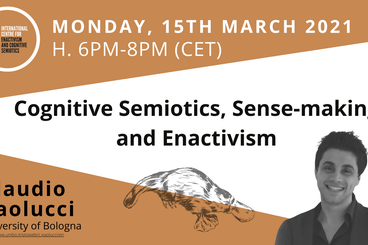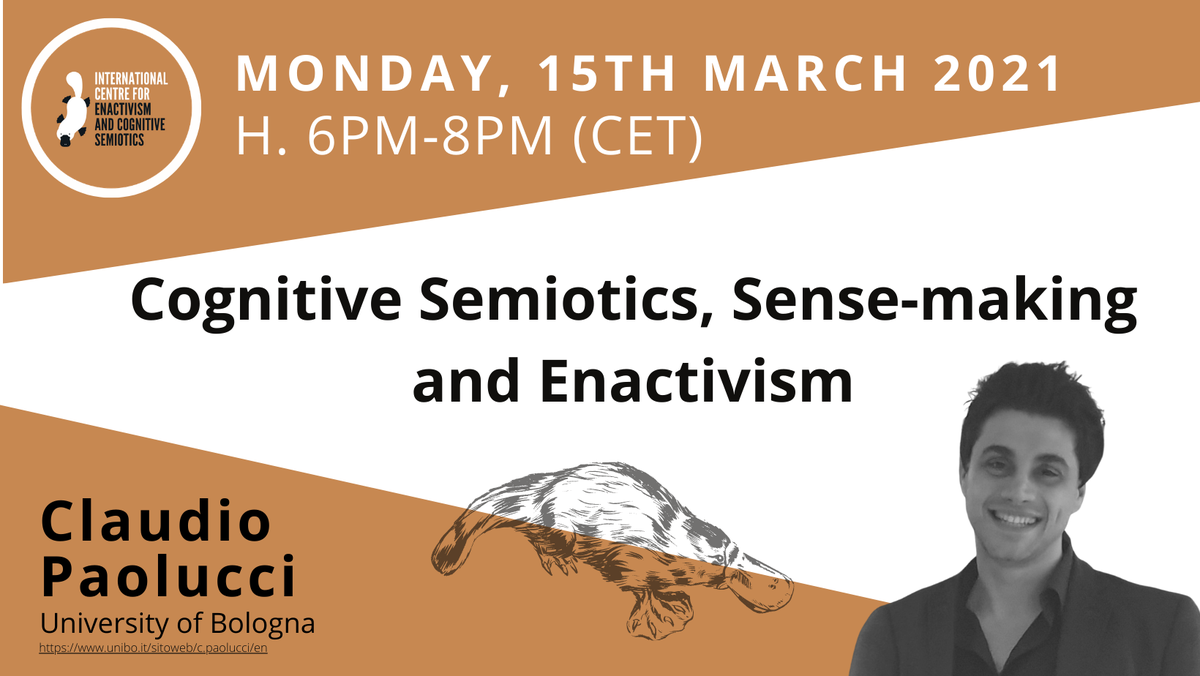
Date: 15 MARCH 2021 from 18:00 to 20:00
Type: 1st series of seminars

Abstract: Enactivism assumes that every cognition, perception, or thought results from the interactive relations that occur between an organism and the environment in which it is situated. From a cognitive semiotics’ point of view, this environment is not a “natural” one, but a semiotic environment crowded with objects, norms, habits, institutions, and artefacts that shape our minds. Starting from the structural coupling between organism and environment, a subset of the myriad forms of coupling with the environment that are appreciated as meaningful by the organism, emerge. In his last works, Varela called this relationship “sense-making”, thus identifying its semiotic structure from its name onwards.
In my talk I will deal with sense-making from a cognitive semiotics’ point of view, dealing with both arts and perception, claiming that cognitive semiotics understands cognition i) as an “enactive” skillful activity that involves the ongoing interaction with the external world; ii) as something that brings forth the world through meaning, whereas meanings are not representations of the world, but habits and sense-making activities; iii) through a point of view that thinks at the way in which texts, languages and semiotics systems scaffold the way humans come to know the world and represent the background of our perception of the environment.
About the Lecturer:
Claudio Paolucci is Professor of Semiotics and Philosophy of Language at the Department of Philosophy and Communication Science of the University of Bologna (Italy). He is the scientific coordinator of the International Centre for Humanities “Umberto Eco” and the coordinator of the PhD programme in Philosophy, Science, Cognition and Semiotics of the University of Bologna. He is currently the Principal Investigator of two European Projects on embodied interactions (NeMo) and fake news (Fakespotting). His research is focused on Semiotics, Semantics, Cognitive Sciences, Theory of Enunciation and Subjectivity, Enculturation and Social cognition (with a special focus on Autism Spectrum Disorders). He has published more than 100 papers and five books. His last book is Cognitive Semiotics. Integrating Signs, Minds, Meaning and Cognition (Springer, 2021)
Download the Flyer and click the Platypus to join the Meeting.